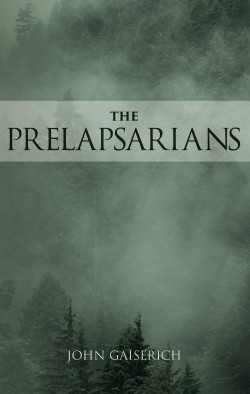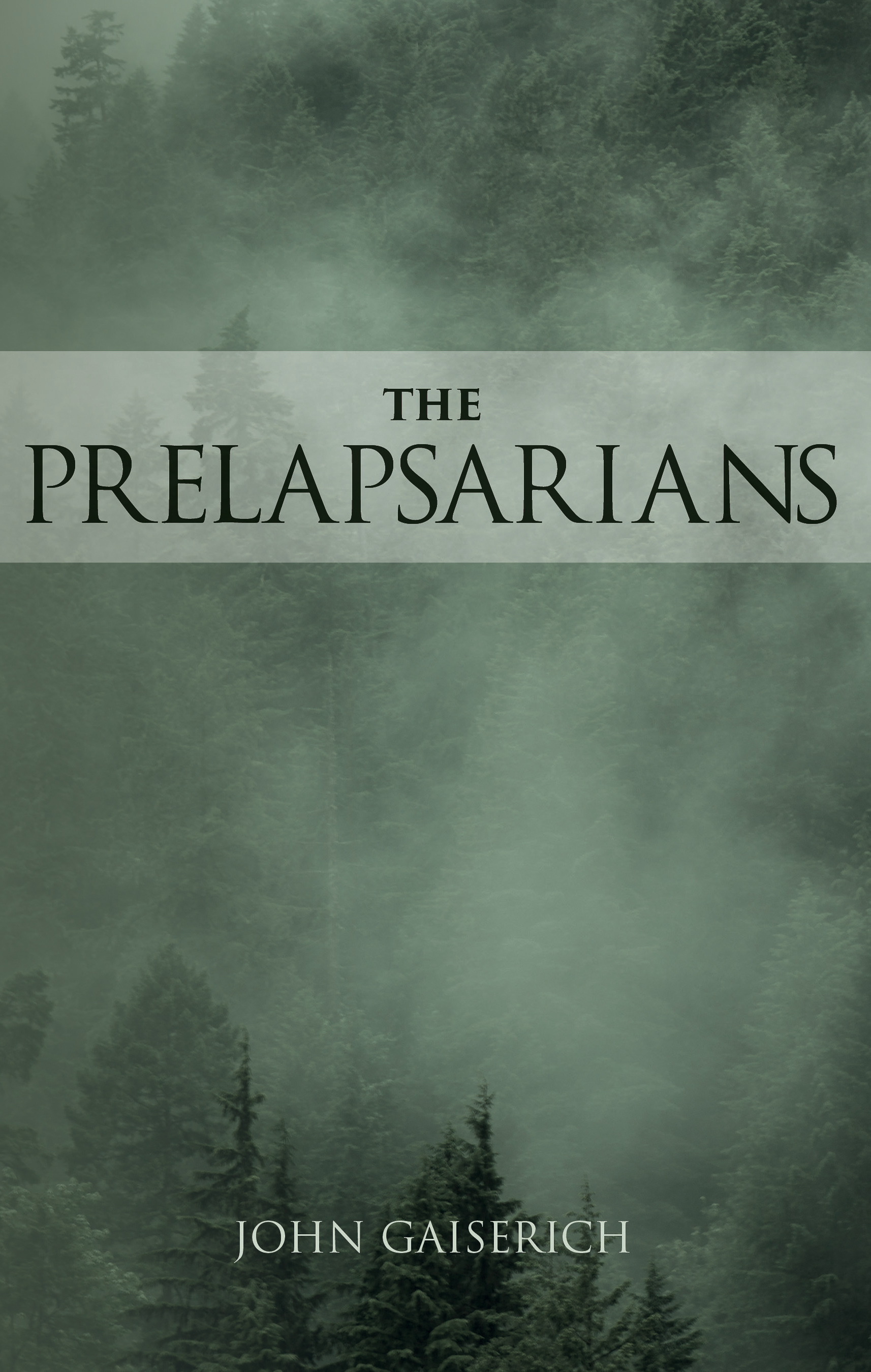
 Review Fix chats with author John Gaiserich, who discusses the creative process and goals for his new book, “The Prelapsarians.â€
Review Fix chats with author John Gaiserich, who discusses the creative process and goals for his new book, “The Prelapsarians.â€
About THE PRELAPSARIANS
Twenty-five years after the eruption of the Yellowstone supervolcano and the massive war that followed, the scattered, dwindling remnants of the human race are forced to eke out a primordial existence while the supply of a drug vital to their survival is controlled by a group of greedy Oligarchs. For those born before the disaster, those called the Prelapsarians, the future looks hopeless. But there are some who choose to resist.
In the south of Russia, a band of retired mercenaries –Â led by the formidable, morally ambiguous Andrei Evgenyevich Myshkin –Â seeks to undermine the Oligarchs’ power. Their ardor is invigorated when they join forces with Ani Ohanyan, a headstrong, idealistic young smuggler with a dream of a brighter future and a penchant for getting herself into trouble. Together, their quest takes them across the Caucasus Mountains, through the ruins of once-prosperous cities, and to the shores of the Caspian Sea, faced along the way with backroom intrigue, fierce battles, and brewing tension that threatens to turn them against one another. But amidst their trials, the greatest struggles they face may be against their own demons.
The Prelapsarians is available in both paperback and e-book formats via Amazon.
ABOUT JOHN GAISERICH
Hailing from Pittsburgh, Pennsylvania, John Gaiserich began writing fiction in 2009. His debut novel, The Prelapsarians, draws heavily on his interest in Russian history and culture and is influenced by the films of Andrei Tarkovsky. In addition to writing, John works as an aviation professional and takes a great interest in the aerospace industry.Â
Connect with John Gaiserich on Facebook, Twitter, Flickr and at www.JohnGaiserich.com.
Review Fix: What was the inspiration for The Prelapsarians?
John Gaiserich: The primary source was my lifelong fascination with Russia.  Two things in particular.  First was the Chernobyl disaster; I grew up in the shadow of Three Mile Island, which came close to suffering a similar fate, and one of my friends once lived near Chernobyl itself.  Looking through photographs of the aftermath, I began to imagine what would happen if such destruction were to take place on a global scale.  Second, the 1979 science fiction art movie “Stalker†by Andrei Tarkovsky had a huge impact on the book, and there are homages to that film scattered throughout.
Review Fix: What’s your creative process like?
Gaiserich: To use a flight analogy, it’s less a swan’s graceful landing on a misty lake at dawn on a cool autumn morning and more a Curtiss Helldiver with battle damage slamming onto the deck of an escort carrier off the Marianas in a squall.  A controlled crash, but there’s indeed a method to the madness!  Most of the time, I go into the plot fairly blind; I start with a few major characters, a general idea of the milieu and the overall theme, and some isolated events, but I rarely start writing knowing exactly how the story is going to play out and where it’s going to end.  So, hopefully, that makes the story just as unpredictable for readers – I’m in the dark as much as the characters!
With “The Prelapsarians,†I wrote most of the pivotal scenes early on, then filled in around them.  Naturally, as the story evolved, I had to go back and revisit those scenes and alter some details that were affected in the process.  This isn’t a great way to write, as it requires a lot of revising to maintain continuity, but I found that, when I wrote everything chronologically, I’d either rush toward the important material and leave the interim parts lacking, or spend so much time fleshing out the buildup that, by the time I reached those scenes, I’d spent all of my creative energy and whatever I’d written lacked the impact that it deserved.
I’ve also found that I write much better if I step away from reading fiction.  The subject matter in “The Prelapsarians†required a good deal of research, so if I was reading anything while writing, it would be a non-fiction volume about the culture and history of conflict in the Russian North Caucasus, where the story is set.  But if I read fiction while writing, inevitably the voice, style, etc. of the author whose work I’m reading will subconsciously affect my own writing.  I remember revising a draft chapter I wrote early on, thinking, “That sounds way too much like Bernard Cornwell.† As it turns out, I’d just finished reading one of his novels.
Review Fix: What did you read as a kid? How did it influence this book?
Gaiserich: I’m a bit ashamed to admit that I didn’t read much as a kid.  Once I finally decided to stop being such a philistine, I got mostly into epic fantasy.  J.R.R. Tolkien remains my favorite author, though unlike a lot of his fans, I prefer the stories in “The Silmarillion.† I remain in awe of the way he was able to build such beautiful worlds, cultures, and histories, and then utterly decimate them.  They’re dark stories, and they don’t have happy endings.  Even Tolkien’s more popular works aren’t all rainbows and unicorns.  At the end of “The Lord of the Rings,†we don’t see Frodo kissing the girl, slapping the Middle-Earth equivalent of a pair of Ray-Bans on his face, and riding his gallant warhorse off into the sunset.  We’re left with a Hobbit who isn’t even the hero (in fact, the most decisive action in the story is an accident), who’s damaged and chastened by his experience, and whose last action is to sail off to what’s essentially a metaphor for death.
That really struck a chord with me, and I’d like to think I write in a similar fashion.  The end of the story is bittersweet, and will probably be disappointing to a lot of readers.  One of the first reviews the book received stated that it read like an epic fantasy.  This is probably as much about the length of the story as anything else, but I take it as a compliment!
Review Fix: What was the editing process like?
Gaiserich: I hired a freelance editor named Rob Bignell to edit.  Rob is an author himself, whose credits include hiking guides, booklets with advice for authors, and a very good novel entitled “Windmill.† The price was right in this instance; “The Prelapsarians†is a monster, and getting it edited at traditional rates would’ve required selling a kidney on eBay to gather the funds.  I submitted the manuscript in June and had it back by mid-August.
I cringe when I hear authors talk about “self-editing.† It’s essential to have an extra set of eyes to look over your work, especially one who’s paid to be critical.  As I learned firsthand, the eye often sees what the mind wants it to see.  I revised my manuscript dozens of times, making sure that the product I sent to Rob was as polished as it could be, and it still came back with a bunch of red marks.
Review Fix: How do you want The Prelapsarians to affect people?
Gaiserich: There are three takeaways, really.  First, I want to give readers an intellectually satisfying reading experience.  I’m not saying I wrote the next “Thus Spoke Zarathustra†or anything, but I want readers to think about the situations the characters are put in and, instead of rushing to judgment, ask what they would do.  I want them to consider the merits and defects of some of the ideas the characters express.  In some cases, I want to give them the impetus to challenge some of their own beliefs.  For instance, a recurring theme is the concept of revenge.  Through the actions and thoughts of the characters, I ask readers to ask themselves whether or not it is ever justified.
Second, the novel takes place in the North Caucasus region of Russia, a place that I feel is unfairly maligned in popular media.  Most people hear the name “Chechnya†and think of a bastion of utter chaos and unchecked violence.  I hope to help change that perception, to show a region full of vibrant cultures and legendarily hospitable people, and that, while the region is certainly volatile, that is mostly a result of poverty, political corruption, foreign meddling, and centuries of oppression, and not indicative of the character of the people themselves.
But mostly, I just want to entertain my readers with a good story.  The philosophical musings and historical tidbits aren’t everyone’s cup of tea, and I realize that.  I’d like to think that those things enrich the story, but if some readers just want to fast-forward to the gritty fight scenes, kinky sex, and schoolyard insults, there’s plenty of meat on the bones for them, too!
Review Fix: How would you like it to be remembered?
Gaiserich: Hopefully as a solid debut effort.  And ten years from now, I want people to say that “The Prelapsarians†was the worst thing I wrote – I want to evolve as an author, after all!
Review Fix: What’s next for John Gaiserich?
Gaiserich: The sequel(s) to “The Prelapsarians!† Actually, the concept I’m working on is not so much a sequel as it is a completely new story set in the same world.  It’s told from the point of view of a character whom readers meet briefly in “The Prelapsarians,†and several characters make return appearances.  At the moment, plans are for a two-book series.  Furthermore, I have a wealth of material that exists as draft chapters, outlines, character sketches, research notes, and ideas fluttering around in my head.  I still have an epic fantasy concept I started writing way back in 2009 that’s been put on ice but may very well see the light of day eventually.  I shouldn’t run out of ideas anytime soon!


Leave a Reply